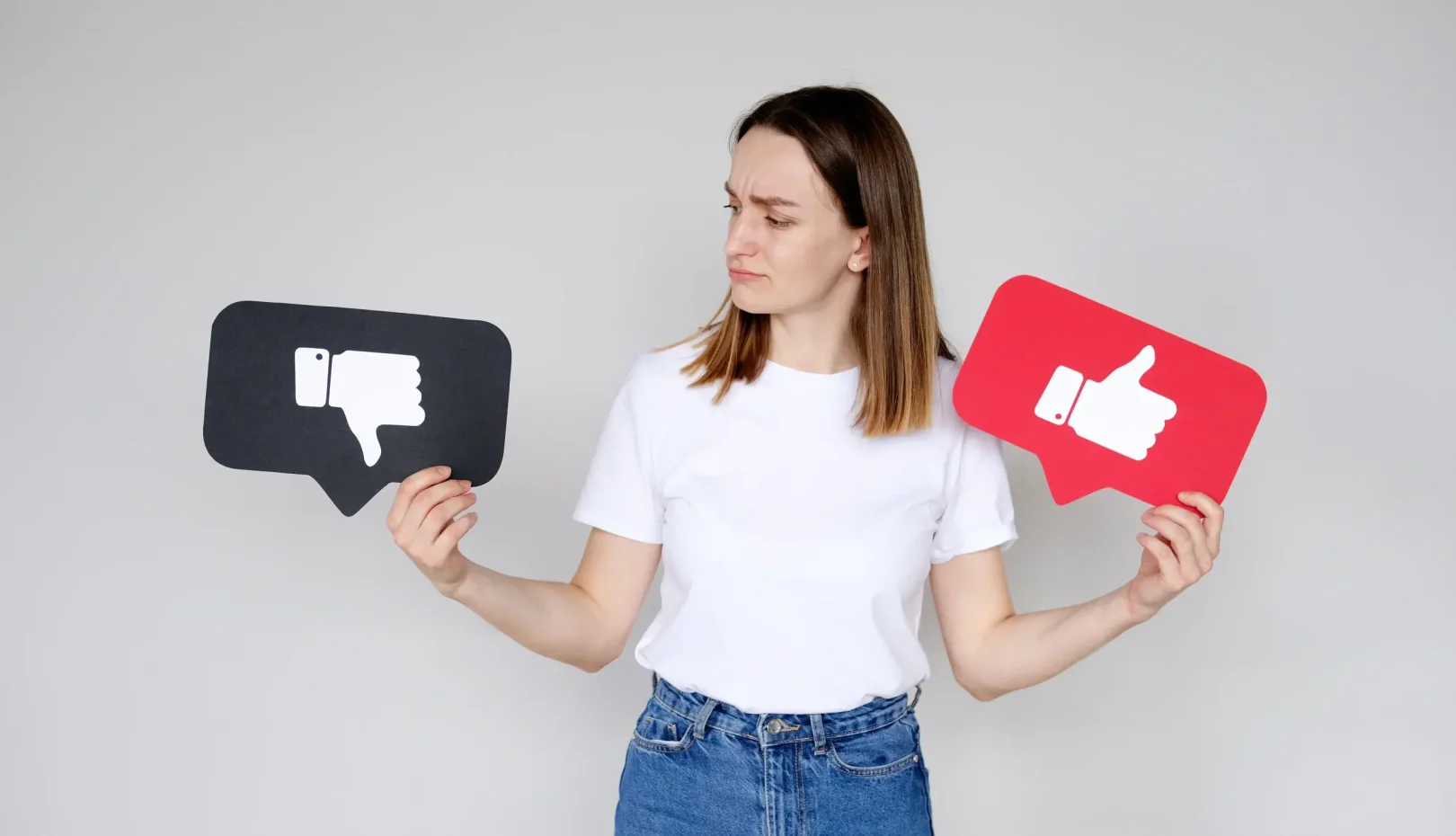The Advantages and Disadvantages of Social Media
Today, social networks are present in the lives of every person at work, at home, and everywhere, giving direction to communication, business, and interaction. Ranging from communication with friends and family members to driving revolutions all across the globe, social media platforms are the new communication handles. However, the positive impacts of social media are huge; some disadvantages correlate with the use of social media. This blog focuses on the advantages and disadvantages of social media.
Advantages of Social Media

Enhancing Connectivity and Community Building
One of the greatest advantages of social media is the fact that it brings people from different parts of the world together. It enables people to connect with their loved ones, find new acquaintances, and become members of a group interested in a particular topic. This connectivity can create an understanding of belonging to a group or being supported by a group.
Social media also helps promote platforms for support, information sharing, working on common projects, or even cases where individuals have a common need or interest. This can be particularly beneficial for individuals who may feel isolated or marginalized in their offline lives.
Boosting Business and Marketing Strategies
Social media has brought about a dramatic change in the way organizations promote themselves, their brands, and the products and services they offer. It is cheap to use and enables one to target a wide audience, interact with clients, and create a brand identity. Various strategies can be adopted for achieving high customer engagement; one of these is as follows: Adverts, It is common for any business to employ advertising as a way of attracting its customers.
Also, social media presents extra new ideas and demographics that could be realized quantitatively, which can make any business pierce its target audience more effectively.
Facilitating Access to Information and Learning Opportunities
Customers get to spend time on social networks, thus making them a source of such data, as huge numbers of topics are covered on social media. Users are easily able to follow the current affairs and ideas of experts and interact with posts that expand their horizons.
Furthermore, social media has endless ways through which one can learn from online courses, webinars, tutorials, and other valuable content that an expert shares. This can prove very useful in the advancement of individual and career development for people of all ages.
You may also like to read: How to Earn Global: Tips and Strategies for Worldwide Income
Opportunities for Learning and Career Development
Hence, social media can act as a useful path for career advancement. Social networking websites such as LinkedIn enable working people to connect, share knowledge, and look for employment. Another way in which social networking helps people is by promoting people’s personas and assisting them in marketing the skills and accomplishments they possess that they could sell to employers.
Furthermore, social media enables access to industry news, trends, and insights, which can help individuals stay competitive and informed in their field.
Promoting Social Change and Awareness
Social media play a role in making changes and creating awareness within societies. It serves as a means of creating awareness of issues, fundraising for issues, and campaigning for change on social issues.
Activists and organizations can use social media to spread awareness about their cause, reach more people, and make changes in society.
The Advantages and Disadvantages of Social Media
Despite the great opportunity, social media has some disadvantages that should be managed effectively. It is up to the users to maintain their privacy, ensure good mental health and consume quality information. It is important to strike a balance between activities done on the internet and physical activities so as to maintain good health.
To a certain extent, one can realize the benefits of social media while keeping away from its negative effects by practicing conscious use of social networking sites. Potential negative impacts can be avoided, and their positive impacts, on the other hand, can be harnessed.
Disadvantages of Social Media

Privacy Concerns
One of the main disadvantages of social media is that it involves privacy issues. The increased cases of use of social networks imply that there is a potential for the privacy of an individual to be infringed upon through impersonation and cybercrime. Almost all social networking sites retain user’s information, which can be manipulated or shared with third parties against the user’s wishes.
Furthermore, privacy options are generally set to be comparatively liberal, which means that it is easy to share some of one’s details accidentally. This means the users are exposed to other forms of abuse, such as stalking, harassment, and other violations of privacy; thus, it requires the users to be very careful with their privacy.
Mental Health Impact
How social networks affect people’s psychological state: the role of social support and social comparison. Comparing oneself to what is seen on television, a person is likely to develop low self-esteem, stress, and even depression. Conclusion Possible negative effects that are related to the pressure to keep an immaculate image and be active on social media are stress and burnout.
Further, it is seen that social networking sites favor cyberbullying and harassment, which in turn pose severe impacts on individuals mental health. The addictive nature of these platforms often exacerbates these issues, making it crucial to strike a healthy balance in social media usage.
Spread of Misinformation
Another disadvantage that social media has brought to society is the spreading of misinformation. False news and misleading information can quickly go viral, influencing public opinion and causing widespread panic or misunderstanding. This can have serious consequences, such as impacting elections, spreading health misinformation, or inciting violence.
Efforts against fake news include fact-checking and anti-fake news algorithms that seek to identify fake news and mark it for publication restrictions. However, due to the vast number of posts on social media platforms, it becomes difficult to regulate the flow of information.
Addiction and timewasting
The use of social media is on the rise and has become an addiction for most people. They are made in such a way that they retain the attention of the users on their feeds, videos, or other users, making it very easy for people to spend a lot of hours on the platforms. The consequences involve reduced performance in the morning, decreased ability to sleep or having unrefreshing sleep, and the failure to accomplish real-life tasks and interact with other people.
Social networking services have also been known to be highly addictive and can lead to a lot of distractions and, therefore, delays, and one cannot be able to meet their goals as planned.
Conclusion
In today’s digital era, social media has undeniably transformed the way we connect, conduct business, and access information. Its ability to bridge gaps between people and communities, boost business growth, and provide learning opportunities underscores its significance in modern life. However, the advantages of social media come with their own set of challenges. Privacy concerns, mental health impacts, misinformation, and the risk of addiction are important considerations that users must navigate carefully. By understanding both the benefits and potential pitfalls of social media, individuals and businesses can harness its power responsibly and effectively.
FAQs
1 What are the business benefits of using social media?
Social media provides businesses with a cost-effective platform to reach a global audience, engage with customers, and build brand loyalty. It also offers valuable insights and analytics that help refine marketing strategies and boost customer retention.
2 How can social media impact mental health?
While social media can foster connection, it can also negatively impact mental health by creating pressure to maintain a perfect online persona and exposing users to idealized images and lifestyles. This can lead to feelings of inadequacy, anxiety, depression, and even cyberbullying.
3 What are the privacy concerns associated with social media?
Social media platforms often collect and store vast amounts of personal information, which can put them at risk of data breaches and identity theft. Privacy concerns also arise from the potential for stalking, harassment, and the unauthorized use of personal data.
4 How does social media enhance connectivity?
Social media enhances connectivity by allowing people to stay in touch with friends and family, form new relationships, and join communities with shared interests. It creates a global network where individuals can interact and build a sense of belonging.

